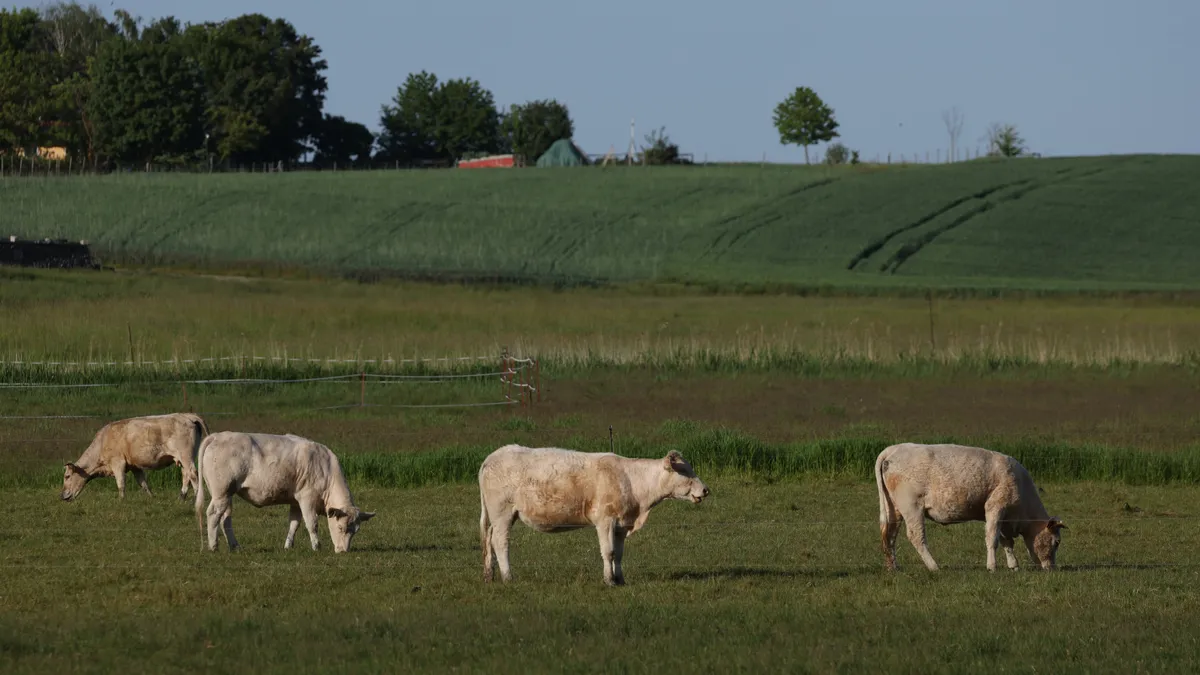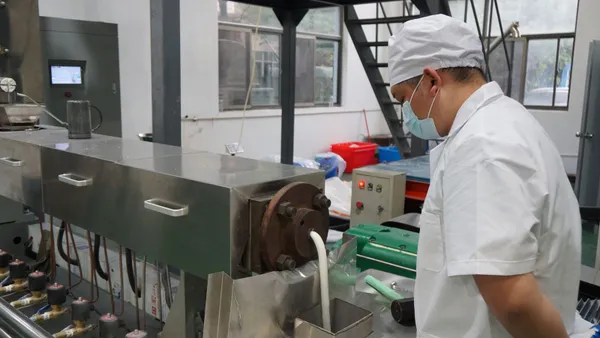Dive Brief:
- Europe's parliament will consider a slate of major agricultural reforms as part of the EU's Green Deal plan to reach carbon neutrality by 2050, though major food companies including Nestle and Danone say some parts aren't ambitious enough.
- The proposals, published by the European Commission on Wednesday, include new rules meant to slow soil degradation and address food waste. Another measure would loosen restrictions for crops that use new genomic techniques to better withstand a changing climate.
- The package comes amid growing pushback against related proposals aimed at restoring biodiversity and slashing pesticide use. Parliament's center-right party — and largest group of lawmakers — has criticized proposals perceived to threaten food security or raise prices.
Dive Insight:
In the wake of a fierce political debate over nature restoration, major business groups say Europe is now not being ambitious enough around many of its other climate goals around agriculture.
The Commission's package includes Europe's first law to improve soil health, and also creates expedited pathways to approve crops that are genetically modified to use less fertilizer or better handle climate change.
While the GMO law was welcomed by some of the world's largest food players for opening the door to use newer gene-editing technology, many say that other parts of the package don't go far enough.
Danone and Nestle, for example, immediately criticized the measure addressing soil degradation for a lack of ambitious targets. The recent proposal would require countries to track soil health, though there are no mandates to reach certain benchmarks.
“Healthy soils are essential for healthy food," Facundo Etchebehere, Danone senior vice president for sustainability strategy and partnerships, said in a statement. "It is critical to transform agricultural practices so that we can begin to reverse the trend of soil degradation and build resilient soils."
Farming issues have become central to the European People's Party campaign for re-election in 2024, injecting new uncertainty into many of the EU's climate priorities for agriculture. The recent legislative package comes as the EPP mobilizes to defeat a landmark biodiversity law to restore nature in 30% of habitats.











